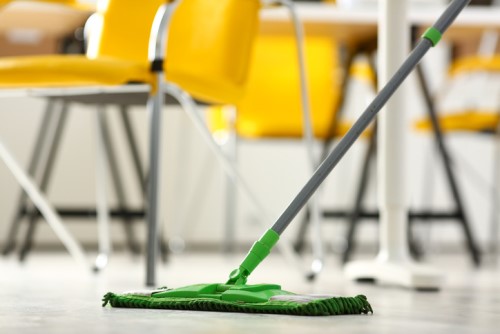
Cane toads, native to South and Central America, were introduced to Australia as a means of controlling pest beetles in the sugar cane industry in 1935. Today they run rampant and largely out of control across much of northern Australia – a classic case of creating an unintended problem in an attempt to solve another.
The school cleaning fiasco, now engulfing public schools in Melbourne, is reminiscent of a much the same ill-informed response.
Late in 2017, and out of the blue, the Victorian Minister for Education, James Merlino, announced that as of July 1, 2018, all locally selected cleaners, mostly small operators, would have their contracts terminated for all Melbourne schools. They would be replaced by one of 5 large scale cleaning companies, sharing a slice of the metropolitan government schools cleaning contracts.
The primary reason given was that the government had become aware that many cleaners, but certainly not all, were being underpaid. The move, the DET argued, would also cut the workload for principals.
Suffice to say, the move was met by schools with a very mixed response. On the one hand, no-one argued that cleaners should not be paid correct wages. On the other, considerable apprehension was evident as principals, many angered at what they saw as a lack of genuine consultation, foreshadowed a series of potentially serious consequences.
Fast forward to term 3, 2018 and recent media coverage of the cleaning reforms has uncovered a metaphorical ‘cane toad’ solution. Not only has there been evidence of cleaners being worse off under the new arrangements – in many cases less hours of cleaning with less take home pay. Worse still, cleaners are unable to complete the proper cleaning of their schools in the reduced cleaning hours for their schools. Reports are ample of stressed cleaners, with some walking off the job.
For their part, many principals are deeply frustrated and angry – 95 per cent have had their daily hours of cleaning cut and it was showing in the quality of cleaning. The DET maintains that “it’s all about standards, not hours”.
Evidence in the new cleaning schedule illustrates a substantial cut in the weekly cleaning requirement of classrooms from that within the previous guidelines. Whereas, under the previous guidelines it could be expected that carpets, for example, would be vacuumed daily, under the new guidelines that would only need to be done twice weekly.
Most schools were losing between 2 and 4 hours daily – equating to, on average 500 hours per school year. That’s significant, as is the pay drop for cleaners. As for cutting principals workload – the opposite has been the case to date, with no end in sight!
If, as the DET stoically insists, the problems are but “teething and implementation” in nature, then how did they in their planning not foresee this and take appropriate action? After all, they had more than seven months lead time.
The simple answer is that, and more. Somewhere in the DET the notion that standards and hours are unrelated, doggedly persists.
There comes a time when the need to fess up and admit an error becomes blindingly obvious. That time is now – start by restoring the previous cleaning hours for all schools.
Henry Grossek is the principal of Berwick Lodge Primary School, located in Melbourne.


